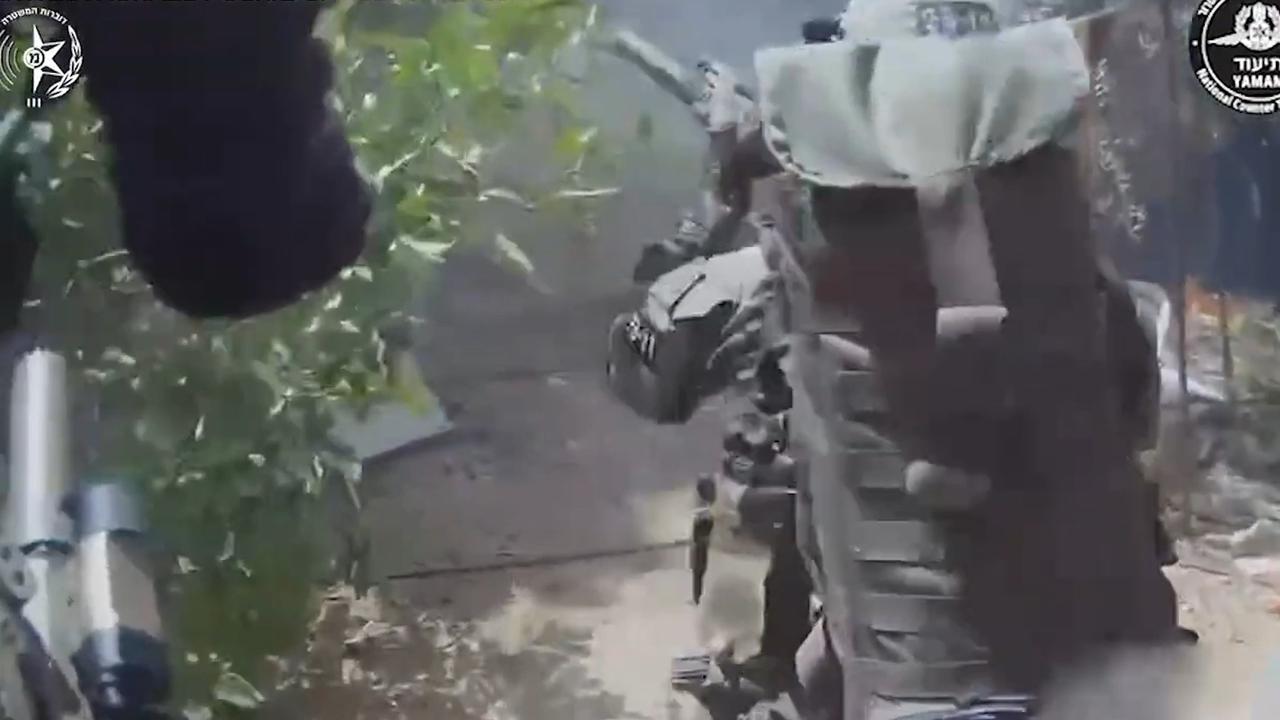Morrow: Israel does not need to justify its hostage rescue to a bunch of pro-Hamas apologists
The same people who complain about pronouns and microaggressions are now defending Hamas’s atrocities because the real name of the game is power, writes James Morrow.
For almost the entire history of human conflict, long before “just war” theory or the Geneva Conventions, certain rules applied.
For example if you as a people were to raid your neighbour, snatch women and children as hostages, and parade the victims through your streets to be beaten with sticks by howling mobs, you could be pretty certain that at some point there would be a robust and kinetic effort to get them back.
If you were also silly or cynical enough to hide those hostages amongst your civilian population, whatever happened to your own side as a result of those actions would be, morally speaking, on you.
To paraphrase a saying commonly heard online, “mess around, find out”.
Yet all of a sudden these old rules appear to have been flipped upside down.

Take the reaction to what should have been the unalloyed good news that Israel successfully mounted a dramatic and dangerous raid deep in the heart of the Gaza Strip, resulting in the return of four innocent hostages taken on October 7.
Rather than celebrating, much of the discussion was around whether the lives of the four Israelis weren’t worth the likely exaggerated Palestinian death toll of 274. Really?

Again, taking hostages, holding them among civilians, and firing automatic weapons and RPGs at their rescuers is going to have consequences.
And again, it is the hostage-takers who bear the ultimate responsibility for whatever mayhem ensues as a result.
Yet this simple proposition seems to have eluded large segments of the media and academia and other right-on social progressives who have collectively decided to a give a free pass to Hamas and their theocratic masters in Tehran.
A few days before the rescue, CNN had no trouble citing claims from the “Palestinian health ministry” (OK, sure) that they had just marked “Gaza’s deadliest day in six months”.
After the rescue, when proof emerged that one of the hostages’ captors was a prominent Palestinian journalist moonlighting as a terrorist, CNN ran the headline: “Israel alleges journalist held hostages in Gaza, without providing evidence.”

In Australia, the ABC reported the rescue but then seemed to legitimise Hamas’ actions, writing: “About 116 hostages are believed to remain in Gaza, and pressure is building on the Israeli government to negotiate their release,” as if their captivity was the fault of Benjamin Netanyahu and not the terrorists who kidnapped them.
One of the most bizarre reactions came from Princeton professor and ex-Human Rights Watch executive director Kenneth Roth.
“Combatants at war have a duty to distinguish themselves from civilians. That’s what uniforms are for. It is key to protecting civilians,” Roth posted on X (formerly Twitter).
“Did Israeli forces during the hostage rescue operation commit the war crime of ‘perfidy’ by pretending to be civilians?”
Helpfully, under the new Elon Musk regime at x.com, readers were able to add a community note pointing out that under international law “perfidy does not apply” if the intent is “only to rescue hostages”.
So what is going on here?
It’s easy to see this as a case of straight anti-Semitism.
Certainly there’s been tons of that on display since October 7, from the “eff the Jews” protests on the steps of the Opera House to a depraved demonstration in New York Monday night where protesters chanted “long live Intifada!” outside an exhibition commemorating the attack on the Nova Music Festival.
But amongst academics and commentators and large segments of demonstrators, there is something both more subtle and sinister going on.

The Palestinian cause has become the new cause du jour of the same broader radical, revolutionary movement which brought you the campus culture wars of the middle of the last decade and the Black Lives Matter riots of 2020.
This movement sees everything through the lens of power and uses this mindset to gain power for itself.
The way they see it, no matter how it suffers, Israel will always be the colonial aggressor, and Palestinian terror groups such as Hamas are excused of any responsibility for their crimes: Witness the attempts to explain away or downgrade the reports of mass rapes on October 7, for example.
And the current fight over Gaza is just the latest chapter of a radical project that began at least in the 1960s.
Back then, Saul Alinsky wrote a wildly popular bible for protesters called Rules for Radicals aimed at bringing down Western capitalist society.
These “rules” planted the seeds for the tactics that are today being used to bully governments in America and Australia into turning hard left on Palestine and much else besides.
Alinsky taught that to the revolutionary “truth is relative and changing” and protesters’ “ethical standards must be elastic to stretch with the times”.
He advised against seeking a “middle ground”, and that the enemy – the state – must be made fearful of the “potential” power your organization has.
Thus the same people who were once complaining about microaggressions and pronouns are now advocating Intifada.
The same people who fret about civilian deaths in Gaza would happily see a thousand times more casualties occur if their “river to the sea” fantasy was ever realised.
Which means for everyone scratching their heads and wondering what’s going on, there’s only one rule to remember.
For the left, it’s not really about Palestine. It’s about power.





